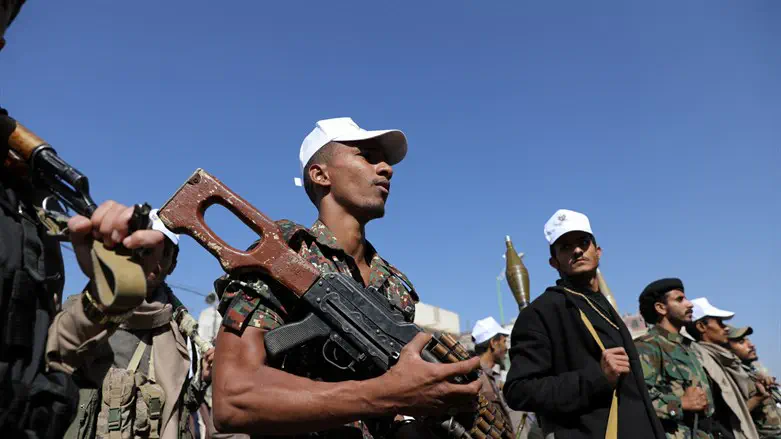
The US has held secret talks with Iran this year in a bid to convince Tehran to use its influence over Yemen’s Houthi movement to end attacks on ships in the Red Sea, The Financial Times reported on Wednesday, citing US and Iranian officials.
The indirect negotiations, during which Washington also raised concerns about Iran’s expanding nuclear program, took place in Oman in January and were the first between the foes in 10 months, the officials said.
The US delegation was led by the White House’s Middle East adviser Brett McGurk and its Iran envoy Abram Paley. Iranian deputy foreign minister Ali Bagheri Kani, who is also Tehran’s top nuclear negotiator, represented the Islamic Republic, according to The Financial Times.
Omani officials shuttled between the Iranian and American representatives so they did not speak directly, the officials said.
US officials see an indirect channel with Iran as “a method for raising the full range of threats emanating from Iran”, a person familiar with the matter said. That included conveying “what they need to do in order to prevent a wider conflict, as they claim to want”.
A second round of negotiations involving McGurk was scheduled for February, but was postponed when he became tied up with US efforts to broker an agreement between Israel and Hamas to halt the war in Gaza and secure the release of Israeli hostages held in the Strip, the US officials added.
It has long been believed that Iran is planning to use the Houthis to take over Yemen and seize the key strategic port of Aden, which controls the entrance to the Red Sea and ultimately to Eilat.
Iran denies it is backing the Houthis and has also denied Saudi Arabian accusations that Tehran provided the Houthi rebels in Yemen with ballistic capabilities.
In January, it was reported that Iran’s Supreme Leader, Ayatollah Ali Khamenei, has taken a personal role in the Houthis’ Red Sea blockade, supporting the further provision of weapons and equipment to the rebels.
The Iranian-backed Houthi rebels have upped their attacks on vessels since the start of Israel’s war against Hamas in Gaza.
In the wake of the uptick in Houthi attacks, the US formed a coalition, made up of more than 20 countries, aimed at safeguarding commercial traffic in the Red Sea from attacks by the Houthis.
In mid-January, with support from other countries, the US and Britain targeted just under 30 Houthi locations with 150 different weapons. The two countries have continued to strike Houthi targets since.
The Houthis have been unfazed by the strikes and have vowed to continue to target ships in the Red Sea.
